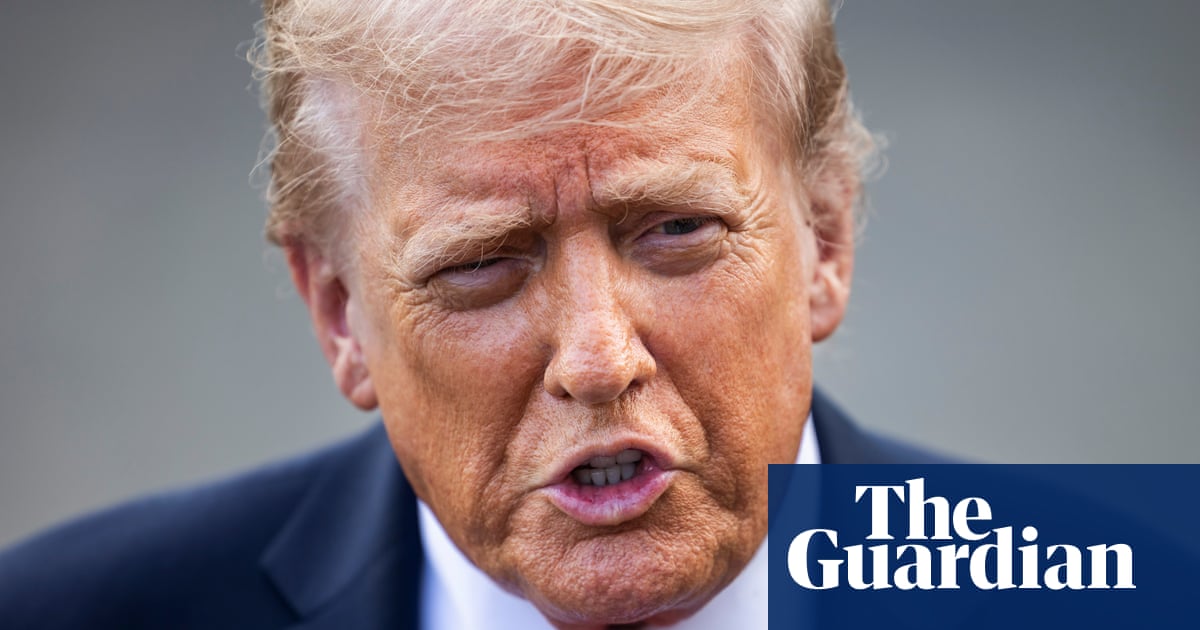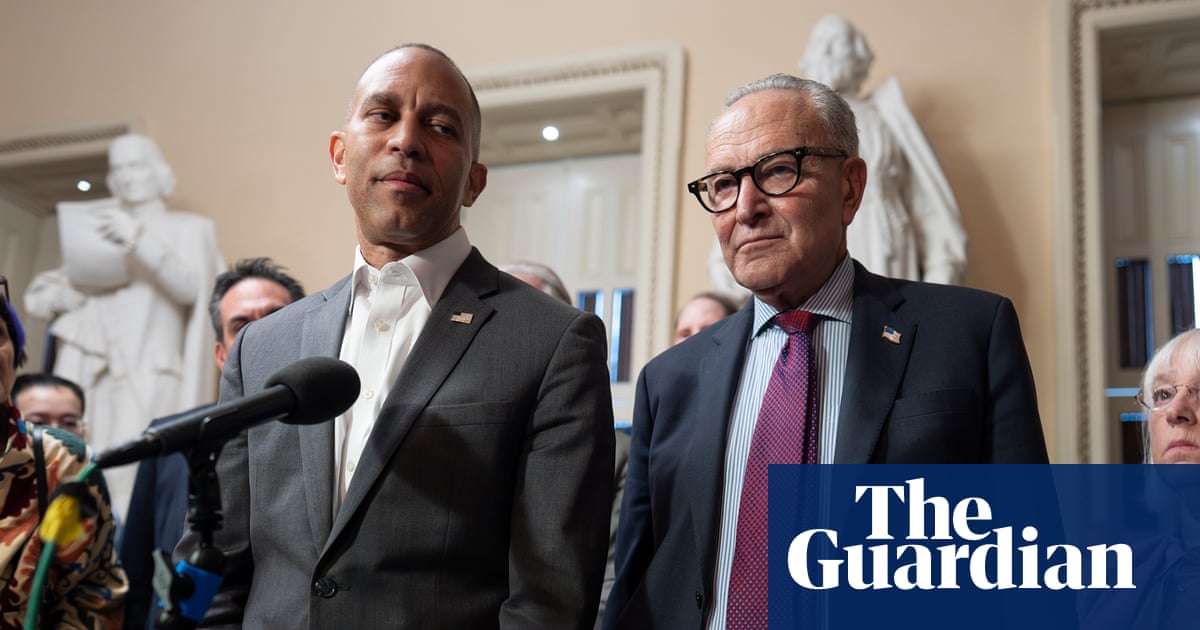The killing of Charlie Kirk has left the US and those who care about it on edge. The arrest of a suspect, Tyler Robinson, has hardly settled the nerves, not when the revelation of any supposed political allegiances could touch off a fresh round of recriminations. The fear is that the country is about to descend into a new era of political violence, becoming a place where differences are settled not with words and argument but by guns and blood. After all, it has plumbed those depths before.
The US was born in violence, fought a civil war less than a century after its founding and in living memory seemed to be on the brink of another one – with a spate of assassinations in the 1960s that took the lives of Martin Luther King, Malcolm X, Medgar Evers and John and Bobby Kennedy. That should provide some consolation, the knowledge that the country has been through this before and survived.
And yet the comfort is scant, because these are different times. For one thing, guns are even more available now than they were then: there are more than 850m firearms in private hands in the world, and nearly half of those are owned by Americans. For every 100 Americans, there are 120 guns.
For another, today’s information supply is dominated by social media, amplifying the most extreme voices and rewarding the angriest sentiments. Where once the CBS anchorman Walter Cronkite could break the news of a presidential assassination and provide sombre balm, now grief is inflamed into fury, with footage of Kirk’s horrific shooting entering global circulation mere moments after his death.
But the crucial difference is at the top. An act of political violence used to be met by a standard, reassuringly predictable response: the president would condemn it, grieve for the dead and their families, plead that there be no rush to judgment, and call for calm and for unity, insisting that Americans not give the killers what they want, which was division, but rather come together as fellow citizens of a republic they all loved. I heard versions of that speech, delivered at different moments by Bill Clinton, George W Bush and Barack Obama. On Wednesday night, Donald Trump chose an alternative path – one that proved that, as he later admitted to Fox News when asked about bringing the country together, he “couldn’t care less”.
Instead, and at a time when no one was in custody and nothing at all was known of Kirk’s killer, Trump said the blame for his death lay with “the radical left”. It was its “rhetoric” that was “directly responsible for the terrorism that we’re seeing in our country today”. The problem was not political violence in general, but “radical left political violence”.
Put aside the inaccuracy of such a statement. Put aside the documented fact that not some, but all extremist-related killings in the US in 2024 were connected to rightwing extremism, just as they were in 2023 and in 2022. Put aside that, although Trump listed incidents in which figures associated with the right had been attacked, he pointedly did not mention and wilfully chose to ignore the murder of the Democratic Minnesota lawmaker Melissa Hortman and her husband in June; or the arson attack on the home of the Democratic governor of Pennsylvania, Josh Shapiro, in April; or an earlier plot to kidnap the Democratic governor of Michigan.
Put it all aside, even though it exposes the transparent falsity of Trump’s declaration that US political violence comes from one side only. Consider instead the likely effect of his words. At best, they add fuel to an already incendiary situation. At worst, they encourage retaliation and revenge.
Witness Trump’s allies and cheerleaders. “We’re gonna avenge Charlie’s death,” promised Fox News host Jesse Watters. Elon Musk declared that “The Left is the party of murder”. A legion of other rightwing influencers have already taken this talk to its logical conclusion, announcing, as one put it, that “THIS IS WAR”. Could the message being sent to a furious and well-armed support base be any clearer?
And notice something else Trump said on Wednesday. He pledged to find those “organisations that fund and support” what he classifies as political violence. Given that one of his closest aides said before Kirk’s murder that the Democratic party should be viewed as a “domestic extremist organisation”, it’s not hard to imagine who he will be coming for. Surely any group that opposes him.
How should they – Democrats, liberals, the left – be responding to this moment of peril? So far they have observed the old norms, with almost every Democratic figure of any standing, whether former president or serving politician, offering the decent, human response: horror at such a brutal act, sympathy for Kirk’s wife and now-fatherless young children, fear for where this leaves the country. Watch MSNBC, or listen to the Pod Save crowd, and you’ll see that that’s how most of the leading lights in the anti-Trump universe have, rightly, responded. Any deviation from that norm has been punished.
It is one of the asymmetries of the US culture wars that this etiquette, rigorously enforced from left to right, is not observed in the other direction. So when an intruder broke into the home of the former House speaker Nancy Pelosi, and nearly clubbed her husband, Paul, then 82, to death, the leading Republican in the country did not offer condemnation or words of consolation. No, Trump responded by making repeated jokes at Paul Pelosi’s expense.
after newsletter promotion
Different rules apply. After an act of violence, Democrats must be gracious, empathetic and call for calm on all sides, while Republicans can mock the victims, blame only one side and demand more violence. And there’s a further asymmetry: a single post from a random, anonymous user online will be treated as a statement from “the left”, while the outpourings of the right’s most powerful voices, in politics or the media, and including the president himself, somehow get a free pass.
As part of this etiquette, it’s become poor taste to point out Kirk’s actual views. It’s as if the belief that no one should be killed for their opinions requires you to withhold any judgment of those opinions. But Kirk did not hold back. He was happy to tell people that he would be nervous getting on a plane flown by a Black pilot, and to talk of “prowling Blacks”; to tell Taylor Swift to “Reject feminism. Submit to your husband … You’re not in charge”; to deny the truth of the 2020 election; to recommend that children should watch public executions; and to suggest “Jewish dollars” were to blame for the spread of “cultural Marxism”.
Many liberal luminaries have swerved past this back catalogue, preferring to express their admiration for Kirk’s willingness to debate and his genuine gift for engaging the young. That has left the field clear for the right to redefine Kirk not as the extremist he was – and was proud to be – but as a paragon of civic participation, one who merits a posthumous presidential medal of freedom and a lowering of the flag. While the liberal left is observing the conventional pieties, the right is swiftly sanitising Kirk’s views and canonising him, hailing him as a martyr for the cause of what they insist is “simple common sense”. As a result, it will have moved the Overton window yet further in its direction.
These are dynamics Kirk knew well and that he was adroit at using to his advantage. He understood that a culture war inherently favours those willing to disregard the rules. It is a lesson that liberals and the left are, rightly, reluctant to learn – but that reluctance comes at an increasingly high price.
-
Jonathan Freedland is a Guardian columnist
-
Do you have an opinion on the issues raised in this article? If you would like to submit a response of up to 300 words by email to be considered for publication in our letters section, please click here.

 German (DE)
German (DE)  English (US)
English (US)  Spanish (ES)
Spanish (ES)  French (FR)
French (FR)  Hindi (IN)
Hindi (IN)  Italian (IT)
Italian (IT)  Russian (RU)
Russian (RU)  3 hours ago
3 hours ago
























Comments